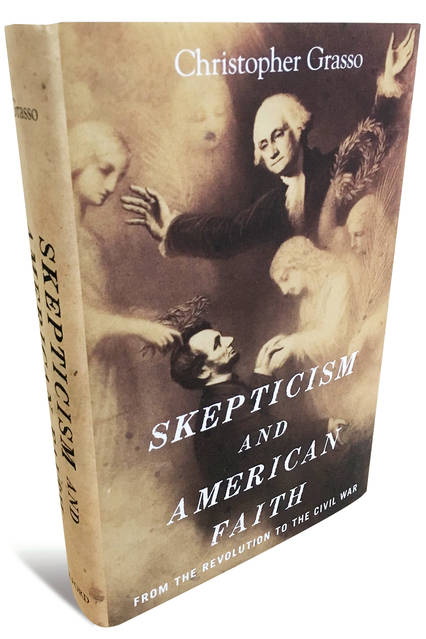The kaleidoscopic tapestry of world religions presents myriad pathways to spiritual enlightenment, yet the Baha’i Faith emerges as a beacon — a unique confluence of unity, love, and social progress. For skeptics, the journey into its teachings may initially appear daunting, veiled in the complexities of metaphysical nuances and doctrinal intricacies. Nevertheless, the exploration of Baha’i principles is akin to navigating an uncharted labyrinth, where each corner turned reveals profound insights into the fabric of human existence.
To embark upon this exploration, it is crucial to contextualize the foundational tenets of the Baha’i Faith. The central figure, Baha’u’llah, heralded a new epoch of revelation, proclaiming that the era of division amongst the world’s religions had reached its zenith. His messages espouse a vision of oneness — a radical conception that transcends ethnic, geographical, and sectarian divides. For skeptics, this claim may invite scrutiny, yet the examination of its empirical implications proves illuminating.
One intriguing metaphor often employed in Baha’i discourse is that of the ‘Tree of Humanity.’ This metaphor encapsulates the idea of a single tree with diverse branches representing various cultures and religions, each blossoming with its own unique flowers. Just as the tree requires nurturing and protection to thrive, so does humanity. The Baha’i principle of unity emphasizes that, despite apparent differences, all branches derive from a common source, advocating for harmonious coexistence rather than discord.
At the heart of Baha’i teachings lies the principle of the oneness of God. Baha’is assert that God is not a singular, isolated entity; rather, He is a transcendent source manifest in various forms across history through chosen Messengers. The implications of this assertion challenge conventional perceptions and invoke an inquisitive exploration. When examining the divine revelations presented by figures such as Jesus, Muhammad, and Krishna as distinct yet harmoniously converging truths, skeptics may find fertile ground for contemplation. This perspective necessitates a paradigm shift, urging individuals to view religious truths as interconnected rather than exclusive.
Furthermore, the Baha’i emphasis on reason and science elevates the discourse around skepticism. Baha’is hold that religious beliefs should align with scientific inquiries. This union of faith and reason serves as a potent antidote to dogmatism. For those questioning the credibility of spiritual narratives, the Baha’i perspective encourages genuine investigation, fostering a climate where doubt becomes an opportunity for enlightenment rather than a barrier to it. This synthesis not only demystifies metaphysical concepts but also resonates with intellectual integrity, appealing to the rational skeptic yearning for coherence between science and spirituality.
Expansion on social justice forms another cornerstone of Baha’i teachings. The religion advocates for the elimination of prejudice, the establishment of gender equality, and the necessity for universal education. In an age rife with socio-economic disparities, this commitment to social justice resonates deeply. For skeptics, examining the tangible impact of these principles in local and global contexts unveils a transformative potential within the Baha’i discourse. Movements promoting equality or educational initiatives emerging from Baha’i communities serve as concrete illustrations of how spiritual principles can inspire systemic change.
Moreover, the practice of consultation is foundational in Baha’i community life. This process, characterized by open dialogue and respectful discourse, encourages collective decision-making devoid of hierarchical dominance. In scrutinizing this democratic framework, skeptics may perceive an innovative approach to governance that fosters inclusivity. It raises pressing questions: How can such practices be integrated into contemporary societal structures? What lessons can be gleaned for improving liberal democracies? The insights garnered from this methodology can serve as a conduit for broader societal reflection.
In contemplating the unique appeal of the Baha’i Faith, the metaphor of a ‘Global Village’ resonates profoundly. The Baha’i vision transcends borders, positing that humanity is interconnected like threads in a vast quilt. This metaphor encapsulates the essence of global citizenship and collective responsibility. For skeptics, the challenge lies not just in comprehension but in the application of a global ethos that acknowledges the interdependence of diverse cultures. This fundamental shift provides a fertile ground for redefining engagement with international issues, as it urges individuals to view global conflicts through the lens of shared humanity rather than insular narratives.
Finally, the teachings of Baha’u’llah offer a clarion call to the future — a prophetic aspiration for peace and unity. Skeptics may engage with the anticipatory framework presented by Bahi’s perspective on the administrative order, where the governance of the world is envisioned as the fruit of collective aspiration and ethical foresight. This model challenges prevailing ideologies, presenting a vision of leadership grounded in moral integrity and systemic harmony. The potential ramifications warrant rigorous contemplation: Can the universal principles espoused by Baha’i teachings serve as a guiding light in addressing contemporary global crises?
In conclusion, the exploration of Baha’i teachings by skeptics invites an enriching journey that balances inquiry with openness. The unique methodologies and poignant metaphors employed within this faith provide fertile ground for intellectual exchange. As the world grapples with existential uncertainties, the Baha’i Faith stands not merely as a doctrine but as a vibrant framework fostering unity, promoting justice, and facilitating profound connections among humankind. Thus, in investigating the Baha’i Faith, skeptics may uncover not only persuasive arguments supporting its teachings but also the undercurrents of a more unified and compassionate world.
